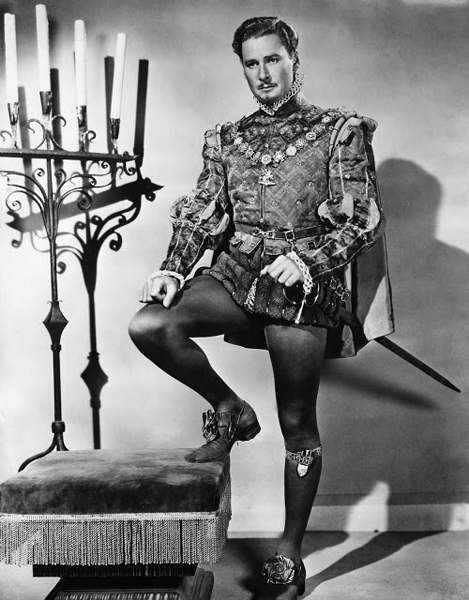
In frock flicks about Queen Elizabeth I of England, one of her two great paramours are usually portrayed. First and foremost is Robert Dudley, 1st Earl of Leicester, who was the queen’s companion from her coronation through his death in 1588. Shortly before his death, he began promoting his godson (and son of Dudley’s second wife, Lettice Knollys) at court. This helped bring Robert Devereux, 2nd Earl of Essex, to the queen’s attention. He was young, handsome, and a military hero from the Netherlands. Soon he became a favorite of the queen, and in 1593, she added Devereux to her privy council.

However, Devereux picked fights with other key figures in council like the more reliable Robert Cecil, and then Devereux lead and abandoned a disastrous military campaign in Ireland. This ended up with Devereux being tried, convicted, and being placed under house arrest in 1600. His response was to attempt a rebellion and try to take the queen by force. Robert Cecil learned of this weak plot and sent out warnings, the queen washed her hands of her last favorite, and Devereux was beheaded in 1601.

Let’s take a look at the different versions of Devereux in historical costume movies and TV shows and see how they stack up!
Lou Tellegen in Les Amours de la Reine Élisabeth aka The Loves of Queen Elizabeth (1912)

Errol Flynn in The Private Lives of Elizabeth and Essex (1939)


Charlton Heston in Elizabeth the Queen (1968)


Robin Ellis in Elizabeth R (1971)


Hugh Dancy in Elizabeth I (2005)


Hans Matheson in The Virgin Queen (2005)


Sam Reid in Anonymous (2011)

Who’s your favorite onscreen Robert Devereux?











Robin Ellis hands down. He has the perfect arrogant, yet foolish, look down pat, and in one image it appears he is wearing horizontal striped stockings.
FWIW, a good friend of mine, a great Tudor-period geek, is quite convinced that Elizabeth doted on Essex as the son that she and Leicester never had, but Essex failed to realise this and thought she was infatuated with him; hence his catastrophic mishandling of their relationship. It certainly makes sense.
Now, that’s an interesting thought. And it does make sense. Thanks to you and your friend. (And yes to the rightness of Irons as Leicester.)
10/10 would watch that in a Black Comedy take on Queen Elizabeth’s later years.
Throw that in with the ‘Half the Scottish Peerage watch whilst the former Henry, Lord Darnley is murdered (because the other half are busy making it happen)’ murder comedy I’ve been imagining since THE SERPENT QUEEN.
Yeah I definitely think Elizabeth thought of their relationship as more paternal than romantic, although she also enjoyed having handsome male companions too. Her favoured metaphor for Essex was that he was a stallion that needed to be bridled. That definitely speaks more to mentoring than romance. I do think Essex was trying very deliberately to replace his stepfather.
That makes sense considering he’s her first cousin twice removed (Mary Boleyn’s great-grandson). And him being Robin Dudley’s step son as well… yeah, I buy it
Don’t forget the Donizetti opera!
It is believed that it was the need to execute Essex that killed Elizabeth. She adored him beyond all reason, despite his various treasons and personal betrayals. He had no reason to expect her to ever turn on him because she had indulged him so much, and he was shocked and, I think, really remorseful at the end. She sank into a deep depression after his death, and Cecil was very concerned about her. She all but stopped eating and sleeping, and went downhill fast.
Dancy was good because he was so vapid that you (along with her entire retinue) wondered why she was so enamoured, but it was because he was Dudley’s nephew (probably son) that made her take him up so completely. If you’re interested in Essex, read Lytton Strachey’s “Elizabeth and Essex,” in which Strachey really seems to get this relationship, both sides, and offers a great deal of insight into the relationship, as many historians have noted. A must-read for true Elizabeth aficionados. And of course, it’s gorgeously written.